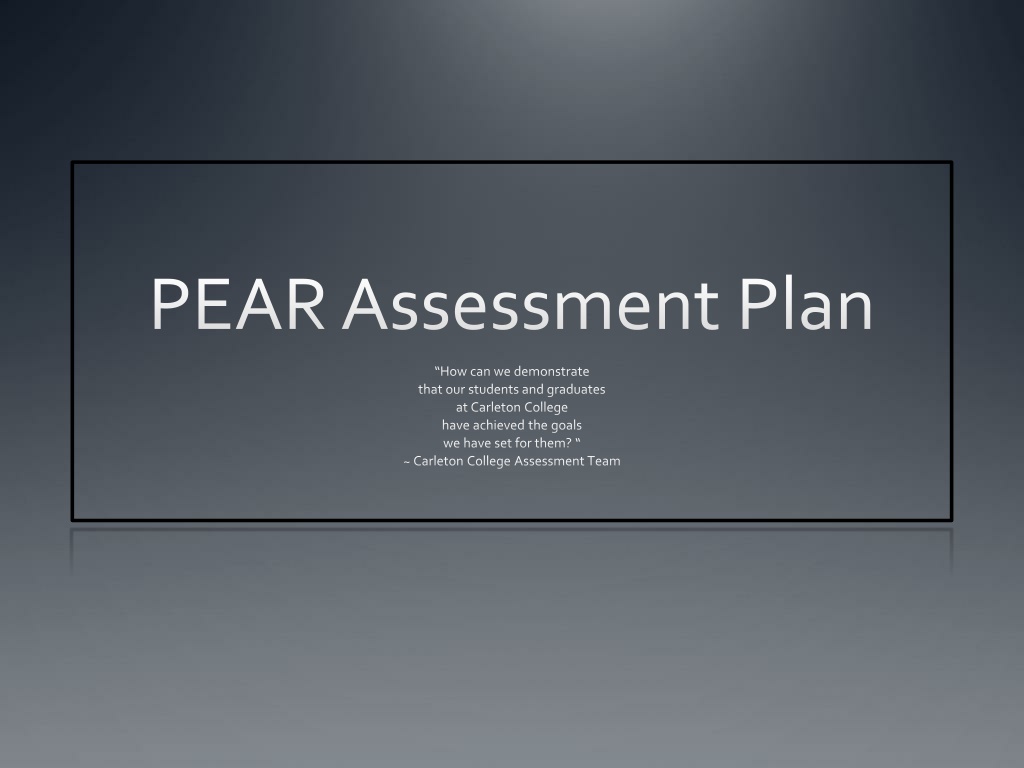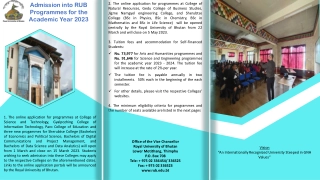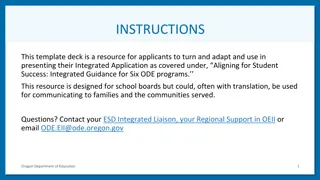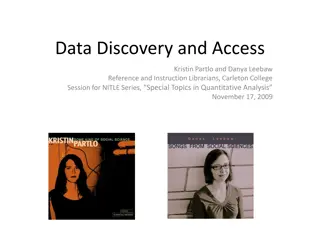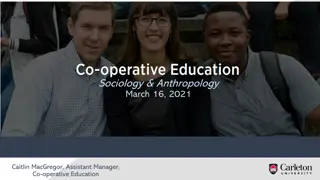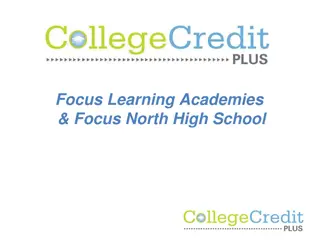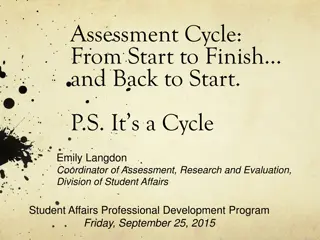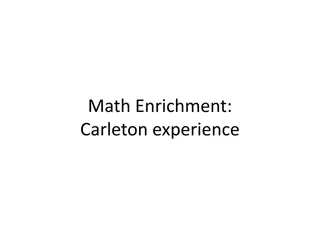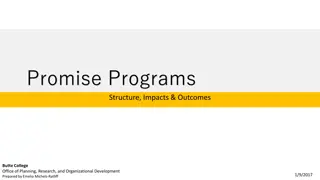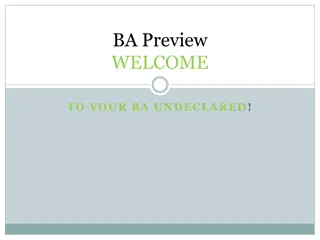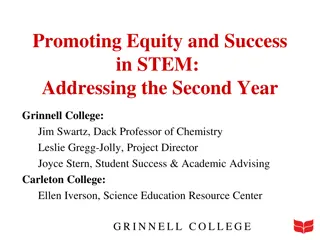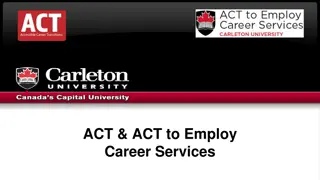Carleton College Assessment Plan for P.E.A.R. Programs
Carleton College aims to assess the achievement of student learning goals in its P.E.A.R. programs through identifying learning outcomes, developing assessment measures, collecting evidence, and reviewing results using tools like surveys and rubrics. The focus is on skill acquisition, knowledge enhancement, self-realization, and behavior changes in physical activities.
Download Presentation

Please find below an Image/Link to download the presentation.
The content on the website is provided AS IS for your information and personal use only. It may not be sold, licensed, or shared on other websites without obtaining consent from the author.If you encounter any issues during the download, it is possible that the publisher has removed the file from their server.
You are allowed to download the files provided on this website for personal or commercial use, subject to the condition that they are used lawfully. All files are the property of their respective owners.
The content on the website is provided AS IS for your information and personal use only. It may not be sold, licensed, or shared on other websites without obtaining consent from the author.
E N D
Presentation Transcript
PEAR Assessment Plan How can we demonstrate that our students and graduates at Carleton College have achieved the goals we have set for them? ~ Carleton College Assessment Team
College Department and Program Assessment Processes Identify groups of students your program/department serves; Compose a simple statement about the most important (two or three) student learning outcomes for each of these student groups; Develop a (short) list of the characteristics (in student work of all Carleton College kinds) that show you that students have met these important goals; Decide on an assessment measure for each characteristic; Collect artifacts - evidence of learning; Review results; Plan for use of each of the assessment results; create multi- year timeline for doing the assessments.
Departmental Goals Carleton College students who have participated in and have successfully completed Carleton P.E.A.R. programs should: Develop self-realization and a positive self-image. Demonstrate an understanding of the benefits (short-term and long-term) of regular activity and have specific strategies of accomplishing personal goals related to health and fitness. Exhibit skill and fitness development as well as understand specific methods for self-testing and assessment. Understand and be able to use strategies, rules and terminology associated with specific physical activities. Appreciate and value positive social dynamics and group collaboration in connection to physical activities.
Student Learning Outcomes SLO s Carleton students who participate in P.E.A.R. sponsored programs should experience: Skill acquisition students should perceive and realize some level of skill improvement. Knowledge enhanced understanding of rules, principles and strategies. Self-realization and behavior changes enjoyment, improved self-confidence along with both short-term and long-term habitual changes with regard to exercise.
Assessment Tools Planned measures to examine evidence of learning outcomes: Student surveys P.E. activity class survey Varsity sport survey Rubrics full-time instructor and head coach evaluations (with definitions of categories indicating student proficiency and levels of achievement) P.E. activity class rubric Varsity sport rubric
Surveys Student Survey Assessment of VARSITY ATHLETICS at Carleton College (SA=Strongly Agree; A=Agree; N=Neutral; D=Disagree; SD=Strongly Disagree) My involvement in varsity athletics improved my attitude towards living a healthier lifestyle. As a result of my learning and involvement in varsity athletics: I will make physical activity a regular part of my routine. I am more confident. I have a stronger level of enjoyment in physical activity in general. I improved my level of skill. I improved my level of activity-specific knowledge.
Surveys Student Survey Assessment of PHYSICAL EDUCATION ACTIVITY Classes at Carleton College (SA=Strongly Agree; A=Agree; N=Neutral; D=Disagree; SD=Strongly Disagree) My involvement in varsity athletics improved my attitude towards living a healthier lifestyle. As a result of my learning and involvement in varsity athletics: I will make physical activity a regular part of my routine. I am more confident. I have a stronger level of enjoyment in physical activity in general. I improved my level of skill. I improved my level of activity-specific knowledge.
RUBRICS P.E.A.R. Activity Classes Varsity Sports 3 Dimensions; 4 levels for each Skill acquisition Knowledge & interpersonal skills Behavior changes & self-management
Implementation Spring 2011 Student Surveys 9thweek of term/end of season Varsity Spring Sports Spring PEAR Activity Classes Rubrics 10thweek of term Full-time instructors 30% random sample Head Coaches First-year S-A s only
Student Voice/Campuslabs https://www.studentvoice.com/app/views/home/
Results & Discussion Approximately 30% return rate for PEAR Activity class surveys Approximately 40% return rate for Varsity sport surveys Other
Next Steps Collect data using current method throughout the 2011- 2012 year Evaluate and Evolve Better system for data collection? Adapt and adjust assessment tools? Better method for communicating findings? Better avenue to promote stronger student response? Involvement of entire P.E.A.R. Department & offerings Full-time, part-time, student-teachers, clubs
P.E.A.R. Assessment Roles Gerald Young Athletic Director & Chair of PEAR Department Provide leadership to the process Implement follow-through Andy Clark Assessment Coordinator Design assessment activities Coordinate/implement assessment activities Implement follow-through Submit reports (track deadlines) Linda Luedke Department Assistant Archive assessment materials Document progress Maintain tickler file
